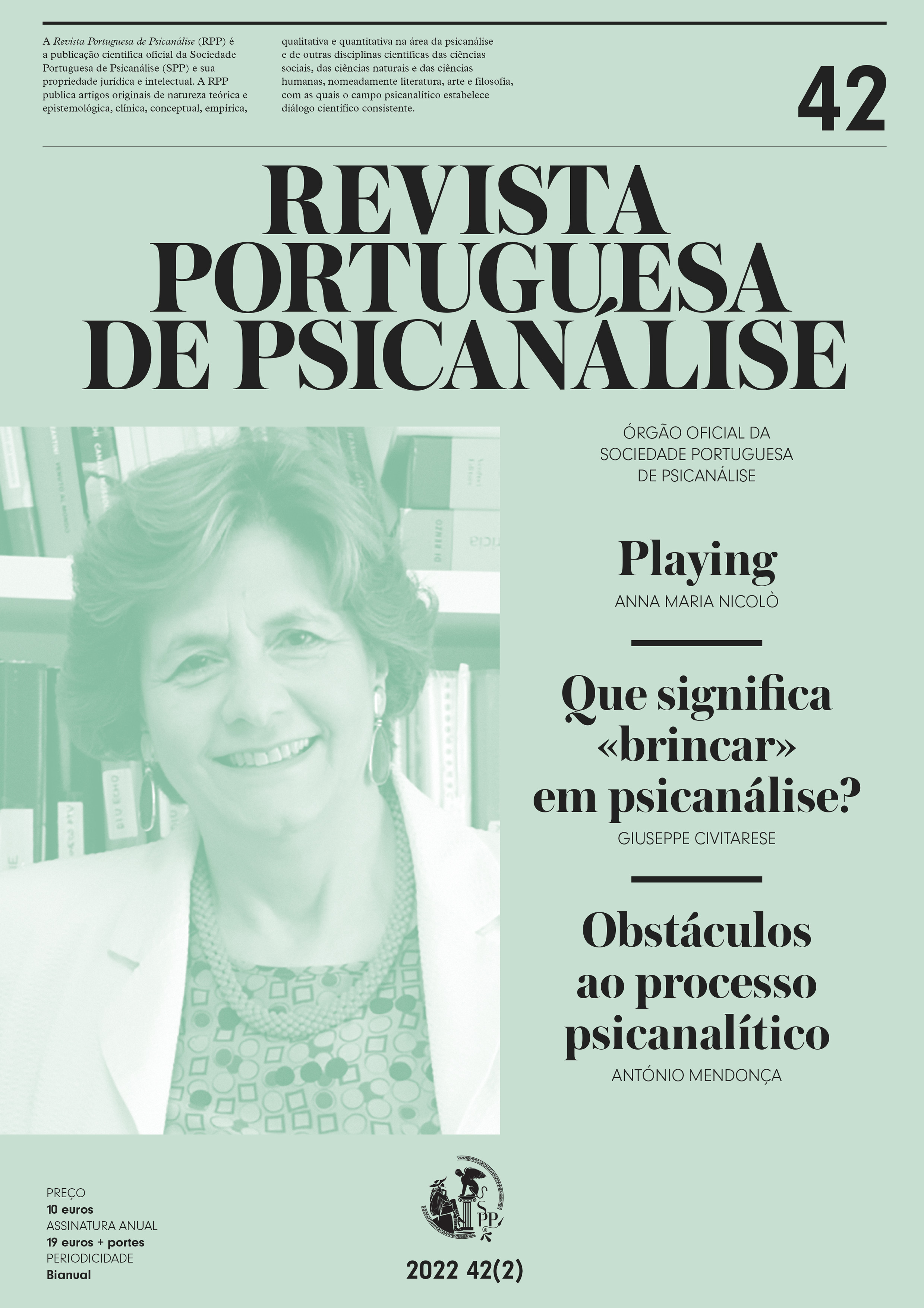40 anos de primeiras entrevistas no Instituto de Psicanálise

Abstract
40 years of first interviews in the Psychoanalytic Institute
The Psychoanalytic Institute has been doing first interviews since 1977. Like similar Institutes, it has been observed a decrease in requests and referrals for psychoanalysis and an increase in referrals for psychoanalytic psychotherapy. Often people who seek relief for their suffering don’t present momentary internal or external conditions to engage in a psychoanalytic process. However, some cases referred for psychotherapy evolve towards psychoanalysis, due to the development made possible from this experience.This study begins with the assumption that the first interview raises anxieties in both participants and an “emotional storm” (Bion, 1979) is created by the encounter between two strangers who contact very intimate aspects of each other. Indications for psychoanalysis and the criteria of analysability have already been at the centre of this reflection. Recently issues such as “the transformation of the first interview into an analytic experience” (Crick, 2014) and the “creation of the analytic patient” (Levine, 2010) have been brought up to discussion. The authors address the processes involved in first interviews and present a historical synthesis of this activity in the 40 years of the Institute of Psychoanalysis. Finally, they reflect after their 6 years’ experience of conducting first interviews and suggest some future challenges.
Keywords
creating analytic patients, first interviews, clinical activity of Psychoanalytic Institute, demand for psychoanalytic treatment
Author Biography
Alexandra Coimbra
Psicóloga clínica, Psicanalista Membro Associado da Sociedade Portuguesa de Psicanálise (SPP) e da Associação Psicanalítica Internacional (IPA).
Ana Catarina Duarte Silva
Psicóloga Clínica, Psicanalista Membro Titular com funções didáticas da SPP/IPA.
Isabel Prata Duarte
Psicóloga Clínica, Psicanalista Membro Associado da Sociedade Portuguesa de Psicanálise (SPP) e da Associação Psicanalítica Internacional (IPA).
References
- Alexandre, M. F. (2014). A Experiência Psíquica: Ensaios sobre a construção do processo analítico. Fenda.
- Bion,W. R. (2014 [1979]). Making the Best of a Bad Job. Em The CompleteWorks of W.R. Bion, vol. x. Karnac Books.
- Crick, P. (2014). Selecting a patient or initiating a psychoanalytic process? The International Journal of Psychoanalysis, 95(3), 465–484.
- David, C. (1998). Dans quel esprit aborder le premier entretien? Revue Française de Psychanalyse.Tome LXII, 87–99.
- Ehrlich, L.T. (2020). Psychoanalysis from the Inside Out: Developing and sustaining analytic identity and practice. Routledge.
- Levine, H. (2010). Creating analysts, creating analytic patients. The International Journal of Psychoanalysis, 91, 1385–1404.
- Ogden,T. H. (1992). Comments on transference and countertransference in the initial analytic meeting. Psychoanalytic Inquiry, 12, 225–247.
- Perez-Sanchez, A. (2012). Interview and indicators in psychoanalysis and psychotherapy. Karnac Books. Reith, B. (2015). The First Interview: Anxieties and Research on Initiating Psychoanalysis. The International Journal of Psychoanalysis, 96, 637–657.
- Reith, B., Møller, M., Boots, J., Crick, P., Gibeault, A., Jaffé, R., Lagerlöf, S., & Vermote, R. (2018). Beginning Analysis: On the Processes of Initiating Psychoanalysis. Routledge.
- Wegner, P. (2012). Le travail psychanalytique centré sur le processus au cours du premier entretien et la signification de la scène initiale. Bulletin de La Fédération Européenne de Psychanalyse, 66, 27–47.
- Widlocher, D. (2010). Distinguishing Psychoanalysis from Psychotherapy. The International Journal of Psychoanalysis, 91, 45–50.